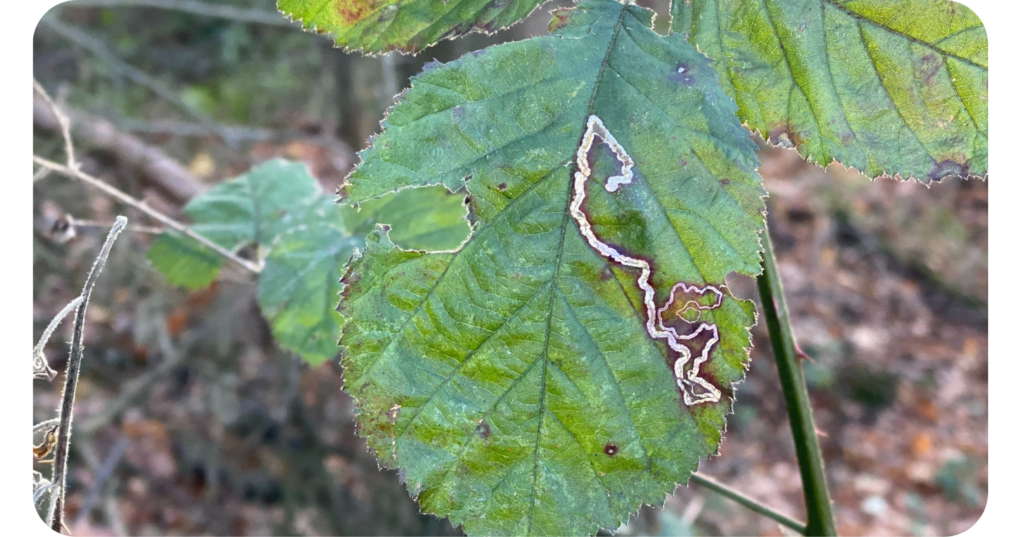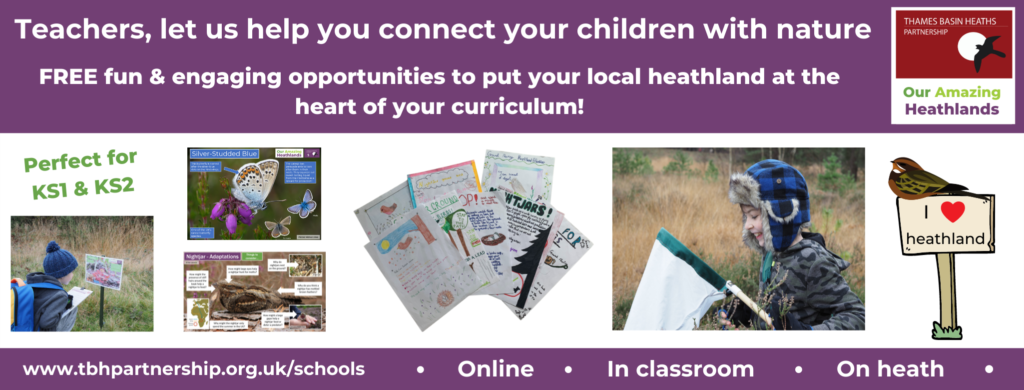Connections with nature
I feel fortunate to be able to spend a lot of my time sharing the wonders of our natural world with other people. I do it when I’m working with school groups, on guided walks and when I sneak out to do a bit of wardening on our wonderful heaths.
When I’m not working, I do exactly the same to friends, family and random passers-by! In fact, no one is safe from me trying to point out an interesting species or sharing my absolute wonderment at nature. The whole world needs to know just how brilliant nature is – I almost can’t help myself.
During these exchanges, in amongst my excited exclamations of ‘amazing’ or ‘awesome’ or ‘fantastic’, I usually say something along the lines of ‘I wholeheartedly encourage you to stop and take a closer look’. This is probably as close as I’ll ever get to having a catchphrase. Admittedly, it’s not very catchy, but it’s one-hundred percent true.
Improve your nature connectedness
With my compulsion to encourage people to look closer at nature, it turns out, I’m actually onto something. There has been lots of recent research showing a causal relationship between nature connectedness and pro-environmental behaviours. This means that the more someone is connected to nature (the more they engage with nature by stopping, looking, listening, smelling and feeling), the more they will take actions to benefit the environment. This can only be a good thing – for the environment and people. This increased connectedness benefits the natural world because engaged people look after it better. It also benefits people through improving wellbeing and giving life extra meaning.
Before Christmas, I attended a ‘Nature loving teachers’ meeting run by Surrey Wildlife Trust and it inspired me to write this blog.
Give it a go…
The next time you go on a walk, please stop and have a really close look around. It might take a while to get your eye in, but, in time, you’ll be amazed at all the little things you notice… That mini spider whizzing across a leaf, that teeny tiny mushroom growing out of a pine cone or the different types of lichen growing on a tree trunk.
If you hadn’t taken the time to look, you would have missed a tiny world of wonder unfolding everywhere around you. The closer you look, the more you notice.
I find that lying down on the floor is a great way to get a bug’s eye view of the world, but appreciate that’s not everyone’s idea of fun. It occasionally draws a few stares from passer’s by – which is fine by me!

Take a moment to trace the journey of a leaf miner caterpillar. Can you find where it began and see how it grew as it ate?
Take a closer look…
On your next walk, can you spot any of the following…
- Beetle burrows
- Galls on the underside of leaves
- Tiny fungi
- Mini forests of lichen in amongst taller plants
- A caterpillar’s life story on a leaf

You might be able to spot a dung beetle burrow (with bonus rabbit droppings!), galls on fallen leaves, tiny fungi or colourful lichen.
… and connect
And then, take the opportunity to ask yourself how the encounter makes you feel. What do you appreciate about it?
Perhaps, think a bit deeper about what you’ve spotted. For example, if you find a dung beetle burrow, why not ask yourself how far the beetle had to roll the rabbit poo to get it to the hole? What route did it take? What dangers did it face along the way? Where’s the rabbit hiding? Is it peeking out at you from behind the brambles wondering why you are staring at its droppings? I often find that spending a few moments thinking about this sort of thing makes me feel good. Being more connected with my natural surroundings makes me happy. I probably need to point out that I also spend time in nature not thinking about rabbit poo… and that’s just as rewarding!
Do send in your photos of those little things you spot on your walks and we’ll share some of them on our social media feeds.
Michael Jones
Education Officer



